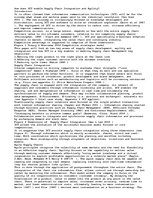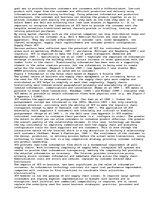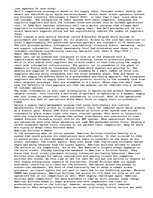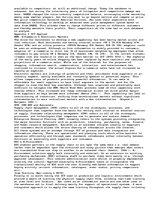In the pioneering days of online systems, American Airlines invested heavily in a system that would process its reservations more efficiently. It then occurred to them to extend access to this database of airline seats to terminals on the desks of its direct customers, the travel agents. They soon found that significant increased market share was being obtained from the travel agents. American Airlines decided to extend the service to its competitors, for a fee. But American's flights always appeared on the first screen, thereby biasing the database in American's Airlines favour. They found that first screen placement strongly influenced purchasing behaviour. American Airlines also charged for making reservations and issuing tickets for competing airlines who listed. By this time it was too late for all but one airline to respond to this highly enterprising sequence of initiatives. United Airlines made its system available, resulting in a clash for the business. The market proved big enough to sustain two databases, but both of them eventually had to adopt a common access procedure, as travel agents did not want to learn how to use differing systems. Because SABRE was proprietary, American Airlines had access to rich data not only on its own operations but on its competitors as well. When legally challenged again, American Airlines made competitors' own data available to them at still another usage charge. American Airlines bowed to legal pressure and sold competitors the right to preferential places on the listings. However, priority display still remained American's. When monopoly action again succeeded, a priority listing service was made available to competitors, at still an additional charge. …






